

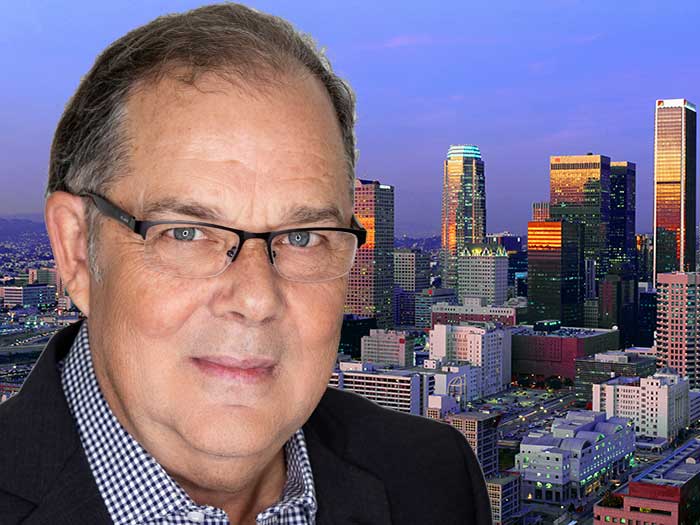
SCS Engineers welcomes Michael Wright to the firm as Senior Project Manager in Environmental Services. Wright’s work takes underutilized or contaminated properties and returns them to productive use.
Wright comes to SCS as a licensed professional geologist, geophysicist, hydrogeologist, and licensed general contractor. He has more than 35 years of experience on national projects, including work for the Federal Department of Defense, Army Corps of Engineers, EPA, Forest Service, and Caltrans. His clients include those in commercial real estate, finance and manufacturing, and port authorities, including the Port of Los Angeles. Wright also has an extensive background in conducting environmental insurance claim investigations and providing litigation support.
Wright holds specialty certifications in OSHA Health and Safety, OSHA Hazard Recognition, and Constructions Quality Management for Contractors. Wright holds professional affiliations with the Bay Area Geophysical Society, Groundwater Resources Association, and National Ground Water Association.
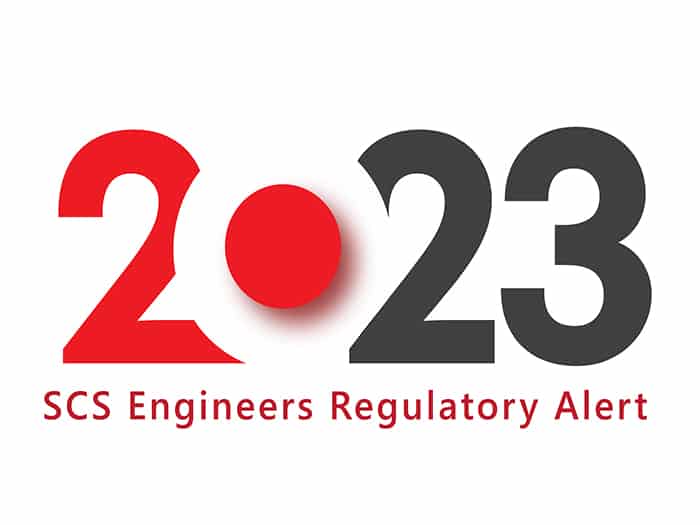
On February 13, 2023, the EPA announced the availability of $2 billion of grant funding to address emerging contaminants, like Per- and Polyfluoroalkyl Substances (PFAS) in drinking water across the country. This investment, which is allocated to states and territories, will be made available to communities as grants through EPA’s Emerging Contaminants in Small or Disadvantaged Communities (EC-SDC) Grant Program and will promote access to safe and clean water in small, rural, and disadvantaged communities while supporting local economies.
This initial allotment of $2 billion to states and territories can be used to prioritize infrastructure and source water treatment for pollutants, like PFAS and other emerging contaminants, and to conduct water quality testing. EPA awards funding to states based on an allocation formula that includes factors such as population, number of water systems, and data related to emerging contaminants. EPA’s implementation documents contain information on how EPA will award and administer the EC-SDC grants. Participating states and territories should submit application packages for the grant funding at https://www.grants.gov.
Additional Resources:
The Mississippi “Magnolia” Chapter of SWANA invites you to attend their 2023 SWANA Spring Conference at the IP Casino Resort Spa in Biloxi, MS, April 4-6, 2023.
The conference provides the chance to learn from experts who deal with the technical, practical, and regulatory aspects of safe and successful solid waste management. There will also be several opportunities to network with our sponsors, exhibitors, and other attendees.
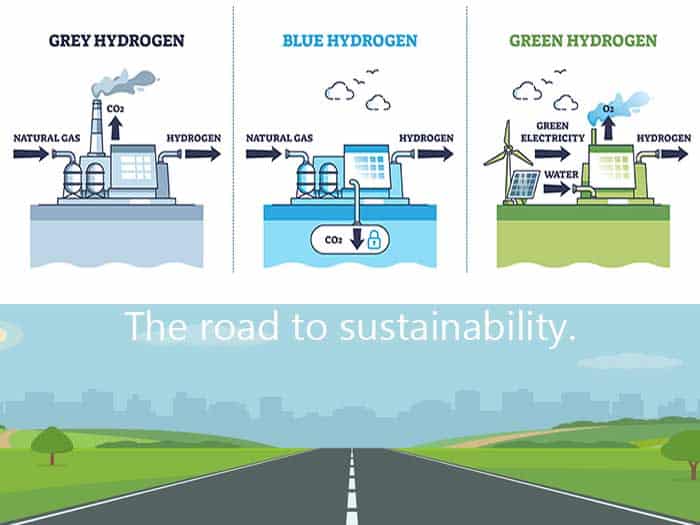
Green hydrogen is a clean fuel that produces only water when consumed in a fuel cell. Because it is produced from domestic resources, such as natural gas, nuclear power, biomass, and renewable power like solar and wind it is an attractive energy option for transportation and electricity generation applications.
SCS Engineers’ recent publication “Green Hydrogen – A New Frontier in Energy” evaluates the feasibility of hydrogen as green energy from production, transportation, storage, infrastructure investment, and environmental impact aspects. He discusses the technical and environmental challenges being addressed now through research, design, and development, and addressing the environmental obstacles to successful implementation of fuel cells and the corresponding hydrogen infrastructure.
Keep an eye on the Department of Energy’s Hydrogen and Fuel Technologies Office site where DOE publishes the developing and testing complete system solutions that address all elements of infrastructure and vehicle technology, integrated hydrogen and fuel cell technologies validations for transportation, infrastructure, and electric generation in systems using real-world operating conditions.
Additional Related Resources:
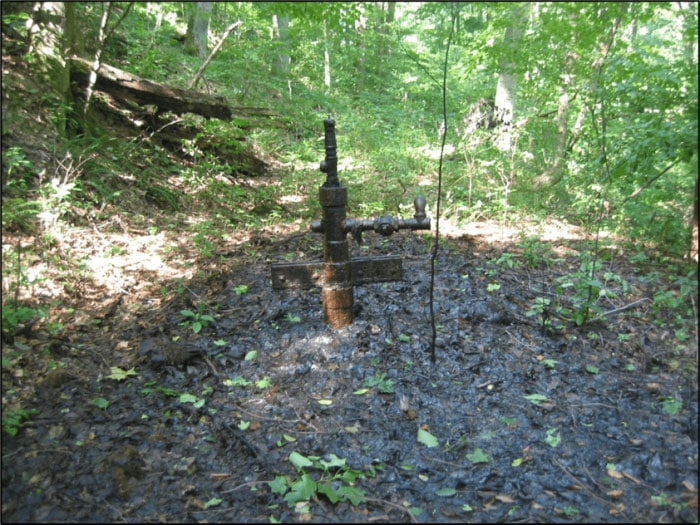
Pennsylvania has a problem. A $2 billion problem.
From 2005 to 2015, I managed the plugging of nearly 1,000 wells in Pennsylvania, New York, and West Virginia. Many of the wells were old wells open to the atmosphere, leaking water, gas, or oil. My research indicated one firm had drilled tens of thousands of wells until the 1990s. Responsible companies like Shell Oil Company plugged many of the wells during my tenure after they learned they had acquired old wells through land transactions.
Many more wells were abandoned or orphaned for every responsibly plugged well.
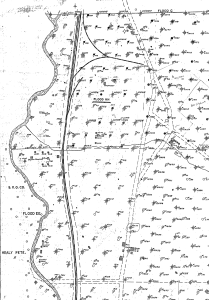
The Pennsylvania Department of Environmental Protection (PADEP) stated there are nearly 27,000 abandoned and orphaned wells on the state and private property. PADEP estimates it will cost $1.8 billion to plug the known wells. In addition, there may be as many as 200,000 unaccounted wells. Large and smaller operators abandoned many of these wells 50-100 years ago. By 1880, 4,000 wells were producing in the Bradford Oil District alone, yielding 50,000 barrels of oil daily. Oil City had 2,000 wells along the shores of the Allegheny River. In the 1940s, the Drake property near Bradford, Pennsylvania, had over 800 wells on 1,200 acres. Many of these wells had since been abandoned or orphaned.
The abandoned/orphaned wells present several potential problems: surface water contamination, groundwater, or drinking water; methane migration to water wells or basements; hazardous air pollutants and greenhouse gas (GHG) emissions; and open holes.
Why have so many operators abandoned their wells without plugging them? And why are wells not properly plugged? The answers are multifaceted.
 Inadequate plugging. In the early days, regulation of the oil and gas industry was motivated by the need to protect the oil and gas resources and not the environment. Many wells before the 1950s were either not plugged or plugged with little cement. Often tree stumps, brush, wood, and rocks, with a sack of cement thrown in, were used to plug wells. Even wells plugged in the 1950s and 1960s are not adequately plugged. When cleaning out old wells, we found junk in the hole like a deer skull, tools, brush, wireline, and trash.
Inadequate plugging. In the early days, regulation of the oil and gas industry was motivated by the need to protect the oil and gas resources and not the environment. Many wells before the 1950s were either not plugged or plugged with little cement. Often tree stumps, brush, wood, and rocks, with a sack of cement thrown in, were used to plug wells. Even wells plugged in the 1950s and 1960s are not adequately plugged. When cleaning out old wells, we found junk in the hole like a deer skull, tools, brush, wireline, and trash.
Funding and Grant Programs
To address these environmental and safety issues, on November 15, 2021, the federal government enacted the Bipartisan Infrastructure Law, which allocated $4.7 billion to create a new federal program to address orphan wells. Nearly every state with documented orphaned wells submitted a Notice of Intent (NOI) indicating interest in applying for a formula grant to fund the proper closure and cleanup of orphaned wells and well sites.
Pennsylvania applied for and has received an initial grant of $25 million. The state applied for and received a Phase One Formula Grant of $79 million and is eligible for an additional $315 million Performance Grant in future years. The law also provides a separate $500 million program for the remediation of orphan wells on federal land, which the Department of the Interior (DOI) Bureau of Land Management will implement.
The DOI released draft Formula Grant Guidance to the states and the public on January 23.
Pennsylvania Act 136 of 2022 (Act of November 3, 2022, P.L. 1987, No. 136 Cl. 58 – OIL AND GAS) became effective January 3, 2023. This legislation amends Title 58 (Oil and Gas) of the Pennsylvania Consolidated Statutes to provide a mechanism for using grant money. It provides $40,000 for every eligible orphan well plugged with a depth of 3,000 feet or less or the actual cost of the qualified well plugger to plug the well, whichever is less. The Statutes also provide $70,000 for every eligible orphan well plugged at a depth greater than 3,000 feet or the actual cost of plugging, whichever is less.
In the event the qualified well plugger encounters unusual technical difficulties due to the condition of an orphan well, the department may, at its discretion, amend the grant award to cover the additional cost, with adequate documentation of those unexpected additional costs, if it doesn’t exceed the amount of the grant for a specific orphan well.
Success in managing this pressing issue requires dedicated effort and expertise from environmental professionals, in addition to government funding, who consider these factors:
Ownership due diligence. Researching ownership through title and tax records.
Where there are challenges, there are opportunities.
The investments to plug and remediate abandoned and orphaned wells create jobs, advance economic growth, reduce hazards, and greatly reduce GHG emissions to meet carbon reduction goals.
The process requires close coordination between the state, geologists, environmental engineers, and drillers. All are benefactors, and beneficiaries, along with the general public and the environment.
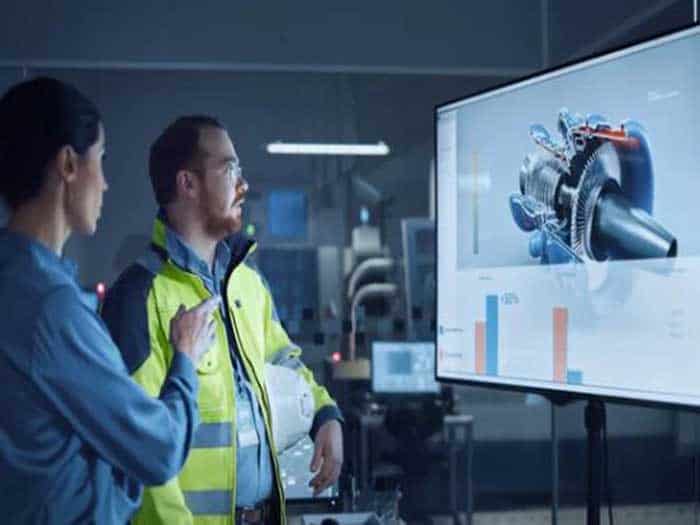
A couple of decades ago, industry Environmental Managers (EM) reviewed and interpreted regulations, permit requirements, and reporting obligations and educated their operations personnel on requirements from the Clean Air Act and Clean Water Act. As usual, time flies, and those major pieces of environmental legislation are more than 50 years old now, and much of the framework remains unchanged. There have also been advances in the best control technologies and great strides in automated record keeping and reporting, enabling us as environmental compliance professionals to be more efficient and offering “clear skies” regarding a manageable workload. Sure, occasional exceedances, deviations, or releases require a four-alarm fire drill as an appropriate response or the integration of the most recent ISO 14001 version release. Still, for the most part, times were good.
Sustainability changes everything.
Environmental Managers read press releases from CEOs making bold claims that their company is adopting “zero” carbon or “net neutral” goals without a real baseline carbon inventory or a roadmap for accomplishing such aggressive measures. Not to say that setting stretch targets are a “bad thing.” On the contrary, they are good targets that improve environmental stewardship for companies that may not otherwise focus on such activities. John F. Kennedy’s famous “We choose to go to the Moon” speech set a bold target for landing on the moon, stretching our space program to new limits.
Meeting the New Challenge
The challenge for you, the EM, comes into play when the responsibility of this relatively new sustainability practice is now on your desk. Larger companies are hiring Sustainability Directors at a record pace which is vital to the planning and programming of new sustainability initiatives. But even then, there are situations where EMs are responsible for implementation and retrofitting plans or projects that are conceptual in nature. And if you don’t have the luxury of a Sustainability Director to lean on, you now have the additional responsibility of developing road maps and strategies.
Where can an Environmental Manager focus on impactfully?
After concluding your version of the Serenity Prayer, we suggest starting in these three areas:
These steps will go a long way toward planning, programming, and launching sustainability initiatives with measurable results. Environmental Managers are making a difference by collaborating with operations to convert sustainable ideas and goals into reality. SCS works with large and small public and private entities to support their actions.
 About the Author: Steven D. Stewart, P.E. PMP, SCS Engineers. Project Director. LinkedIn. I look forward to hearing, ‘One small step for man, one giant leap for Environmental Managers.’ If you need help with your sustainability program, don’t hesitate to contact us at SCS Engineers. Look for Steve this week at the GreenBiz 2023.
About the Author: Steven D. Stewart, P.E. PMP, SCS Engineers. Project Director. LinkedIn. I look forward to hearing, ‘One small step for man, one giant leap for Environmental Managers.’ If you need help with your sustainability program, don’t hesitate to contact us at SCS Engineers. Look for Steve this week at the GreenBiz 2023.
Additional Resources:

Growing consumer demand for environmentally responsible companies that offer new carbon-neutral products and services creates competitive positioning and market value for “green” organizations. In the environmental business, we call this Sustainability.
In addition to complying with regulations and mitigating economic risks, many organizations are concerned about environmental stewardship and corporate responsibility. Our clients provide important services to society; we are pleased to assist them while also helping to minimize adverse environmental and economic impacts.

In this blog, we’d like to introduce you to Erin Quinn. Mr. Quinn has two decades of experience in environmental consulting, specializing in air quality, environmental assessments, and greenhouse gas (GHG) consulting, reporting, and verification. He has participated in over 550 GHG verification projects throughout the United States.
As a specialist in air permitting and reporting, we asked him to step us through the verification process to provide us with time and cost-saving tips while making the verification process smoother.
Erin’s Tips
Check your firm’s qualifications. Seek a firm with a successful record of GHG emissions inventories, estimating GHG reductions, and a thorough knowledge of navigating the Cap and Trade Program. If you are experiencing a gap between your plan and your actual results, they could help identify how to close the gaps depending on their certifications and background.
Go local. For example, on the west coast, look for experience with CARB and ODEQ projects from various industries such as natural gas, coal, biogas and biomass, solar electricity generation, food processing, oil and gas production, electricity and transportation fuels transactions, and paper mills.
Preparation and understanding of a reporter’s GHG emission sources, CARB designation of the facility, or EPE as described in §95101 of the regulations, and any issues the reporting entity may have had while developing its GHG emissions report will facilitate report completion. This takes experience in combination with industry and specific agency requirements.
Investigate that your third-party verification is transparent. Third-Party Verification of GHG emission inventories and reduction credits under state agencies requires an efficient, transparent, and direct methodology for verifying GHG emissions reports.
Steps in the GHG Verification Process
SCS submits a conflict of interest (COI) and notice of verification services (NOVS) to CARB for their approval as soon as an agreement for verification services has been reached. A simple thing, but one that allows us to begin verification service as soon as the reporting entity submits its verification report to the agency, thus streamlining the process.
Next, we set up a kickoff meeting with the reporting entity and a consultant if you’re using one. At the meeting, we discuss the data that will or may, be required for a transparent verification process and documentation. The meeting helps clients understand all the data used in calculating and reporting their emissions, making the data review process seamless. Immediately following, we provide a formal initial data request.
Now we get to work. We begin by reviewing the provided data to develop a verification plan, a sampling plan, and an issues log. We share this with our client and provide any further explanation within the regulatory framework. During this phase, we often communicate with our client as a part of our quality management methodology.
After reviewing and addressing any issues, SCS completes the verification report and has a final meeting with our client within days of receipt so that SCS can submit it to the agency. The end result is a cost-effective, timely, and defendable verification that meets client and agency expectations and all requirements.
GHG Services at SCS Engineers
Our diligence has helped SCS develop excellent working relations with clients, various regulatory agencies, and voluntary registry. Our long experience enables us to understand your needs and how a regulatory agency or registry will interpret an unusual situation.
The firm has delivered verifications for over a decade and has 52 years of environmental compliance expertise for municipalities and industries. Our GHG verification team has completed hundreds of validation and verification projects, from mandatory GHG reporting in California and Oregon; LCFS validation and verification and offset verifications throughout the U.S.
To learn more about the process or to speak with Erin or another team member, please contact us at .
Additional Resources
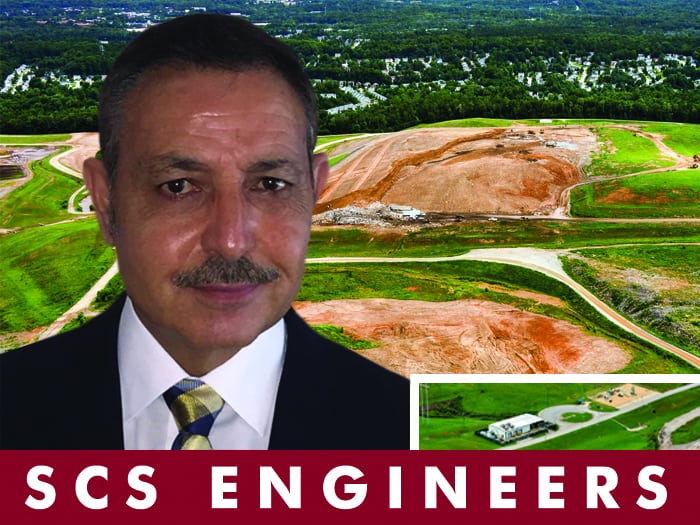
Abdul Mulla-Saleh, PhD, PE, BCEE, joins SCS Engineers as a Project Director specializing in civil and environmental services for solid waste management and master planning, landfill permitting, site development, landfill expansions and closures.
“Abdul brings superior credentials to serve SCS’s clients. Our Southeastern engineering teams bring a holistic approach to solid waste management by combining field skills, advanced technology, and engineering experts to focus on sustainable solutions,” states Vice President Shane Fischer.
Dr. Mulla-Saleh is a licensed Professional Engineer in Alabama, Florida, Georgia, and South Carolina and a Board Certified Environmental Engineer who has supported large civil and environmental projects globally. His portfolio includes new site development and infrastructure projects, master plans for drainage and wastewater, solid waste management, hydrologic and hydraulic studies, flood control structures, pump stations, and roadways.
His successful track record includes projects in the US, where he completed environmental projects, including landfill engineering and solid waste management facilities design, sustainable waste management, including zero waste and carbon neutral concepts, and technical quality assurance.
Abdul is a published author and presents at industry and association educational events. He is a member of the American Academy of Environmental Engineers, the American Society of Civil Engineers, the International Solid Waste Association, and the Solid Waste Association of North America. He earned his PhD in Civil Engineering at the University of South Florida; his MS in Environmental Engineering also at the University of South Florida; and his BS in Civil Engineering at the University of South Alabama.
There is a demand for qualified professionals such as Abdul, and opportunities for those just beginning their careers at SCS Engineers. Each and every team at SCS has opportunities to help protect our water, air, and land for those interested in gaining experience or sharing their expertise with industries responsible for safeguarding the environment as they deliver essential services and products.
For more information about us, please watch our video to see what you can do for your business and community. If you prefer working outdoors as part of a talented, unique team please watch this short video. No matter your job at SCS, you will make a difference!
Visit professionals from SCS Engineers and SCS Field Services at BOOTH 28 at SWANA’s 3-day Northwest Regional Symposium, April 18-20, at the Tulalip Resort Hotel in Marysville, WA. SCS Engineers and SCS Field Services are Bronze sponsors of the conference, and SCS Engineers is also a meal sponsor.
The symposium, themed “The Next Normal: The Future of Solid Waste Management,” will bring together solid waste industry professionals and students from a wide variety of specialized fields to exchange information and learn from technical experts. Hear presentations by SCS professionals, including:
The symposium program will include sessions on Organics Management Planning; Aging Transfer Facilities Planning; Waste Systems’ Financial Impacts (zero waste and funding opportunities); Emerging Landfill Industry Trends (PFAS, liner, leachate, and landfill gas); Sustainability, Recycling, and Extended Producer Responsibility (EPR). It will also include tours of several compelling sites, plenty of networking opportunities, educational credits, exhibits, and much more!
Each spring the Evergreen (WA and MT), Beaver (OR and ID), and Pacific (BC and Yukon) chapters of the Solid Waste Association of North America (SWANA) hold this joint Northwest Symposium.
For full program details and registration information, click here

USEPA recently issued Effluent Guidelines Program Plan 15, which includes a focus on PFAS discharges from multiple categories. In conjunction with Plan 15, EPA has determined that revisions to the effluent guidelines and standards for the Landfills Category (40 CFR part 445) are warranted. See Section 6.3.3 of the Plan. Here are a few excerpts regarding landfill leachate:
Landfill leachate and wastewater treatment planning and resource information are available here.